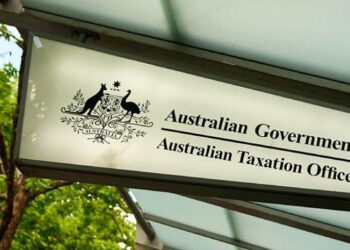In a recent joint submission to the Treasury, CPA Australia and Chartered Accountants Australia & New Zealand welcomed the new measures seeking to reduce red tape for ECPI. However, they stated that some new measures will have unintentional impacts on funds and can have a reverse effect on reducing red tape.
While supportive of the proposed changes to disregarded small fund assets, both accounting bodies point to a discrepancy between the disregarded small fund assets definition and the general transfer balance cap definition.
“We note that the existing disregarded small fund assets definition specifically applies for individuals that have a total superannuation balance of more than $1.6 million,” the joint submission said.
“We further note that there is no link between the $1.6 million amount in sub-sub-paragraph 295387(2)(c)(i) and the consumer price index increases that apply to the general transfer balance cap, and in turn then applies to a person’s total superannuation balance which determines if an individual can make non-concessional contributions in a financial year.
“We request that this anomaly be corrected by aligning the disregarded small fund assets definition with the general transfer balance cap definition in Sec 294-35. We also request that this change be back-dated to 1 July 2017. This will only have an impact from 1 July 2021 which is the first year the general transfer balance cap has been indexed since July 2017.”
Meanwhile, the government had also proposed changes to permit trustee choice in calculating ECPI. While it may provide flexibility, the accounting bodies believed it may have some unintended consequences for all superannuation funds, including those regulated by the Australian Prudential Regulation Authority (APRA).
The accounting bodies noted the intended outcomes to minimise the complexity for trustees and reduce the associated reporting costs for funds will only be the case for a small minority of superannuation funds, where the segregated current pension assets method and proportionate method produced the same ECPI.
“However, for many superannuation funds, it is likely that different outcomes can result from these two methods. For example, capital losses are treated differently under the two ECPI methods,” the joint submission said.
“As trustees will be permitted to move into and out of both methods at multiple times throughout a year, it will be necessary for trustees and their tax advisers to carefully model each available option to ensure they are maximising their beneficiaries’ best interests (potentially soon to involve beneficiaries’ best financial interests) and are not breaching a trustee covenant.
“As a result, we believe this potential change may lead to greater complexity for some funds and, hence, greater costs for them. Our preference is that the government does not proceed with this suggested amendment.”
A return to obtaining actuarial certificate for whole of income year
Along with the changes, the major accounting bodies have requested that the government consider an amendment proposed by CA ANZ in its 2018 pre-budget submission. That proposal recommended that the ECPI rules be amended to permit greater flexibility for funds with a mix of pension and accumulation money for part of the income year.
The accounting bodies noted that if any portion of a fund that is not 100 per cent in the pension phase (typically because there is a mix of pension and accumulation phase monies) for part of an income year, and the assets are not segregated, the ATO believes that the SMSF trustee is required to use the proportionate method to determine the ECPI and, consequentially, is required to obtain an actuarial certificate for that part of the year if it does not wish to pay income tax on fund earnings during that period.
The joint submission stated that in the 2016–17 financial year, it had been industry practice for funds in this situation to obtain an actuarial certificate for the whole of the income year. The ATO allowed this practice to be used for the 2016–17 financial year but not for future financial years.
“The requirement to obtain an actuarial certificate for part of an income year is onerous and expensive for SMSFs. We do not believe this past industry practice led to revenue leakage given the method that actuaries typically employ to determine the ECPI percentage,” the accounting bodies said.
“Consequently, CA ANZ suggested that a regulatory amendment be provided to permit industry practice to continue indefinitely. We do not believe this issue is likely to arise in APRA-regulated funds, other than small APRA funds.
“It is the view of the Major Accounting Bodies that this recommended amendment would provide the greatest reduction in red tape for the small fund sectors in relation to the calculation of ECPI.
“If our recommended amendment was not proposed, we believe it would be better to leave section 295-385 as it is currently drafted. That is, do not amend it.”


